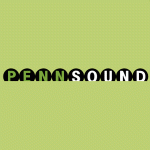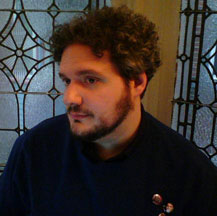David Wilk Interviews Charles Bernstein of L=A=N=G=U=A=G=E Magazine
April 12, 2014 by David
Filed under Publishing History, PublishingTalks
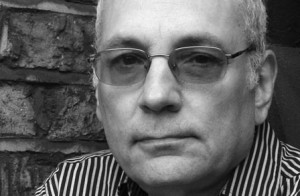 Publishing Talks began as a series of conversations with book industry professionals and others involved in media and technology about the future of publishing, books, and culture. As we continue to experience disruption and change in all media businesses, I’ve been talking with some of the people involved in our industry about how they believe publishing might evolve as our culture is affected by technology and the ebb and flow of civilization and economics.
Publishing Talks began as a series of conversations with book industry professionals and others involved in media and technology about the future of publishing, books, and culture. As we continue to experience disruption and change in all media businesses, I’ve been talking with some of the people involved in our industry about how they believe publishing might evolve as our culture is affected by technology and the ebb and flow of civilization and economics.
Recently, the series has expanded to include conversations that go beyond the future of publishing. I’ve talked with editors and publishers who have been innovators and leaders in independent publishing in the past and into the present, and will continue to explore the past, present and future of writing, books, and publishing in all sorts of forms and formats, as change continues to be the one constant we can count on.
It’s my hope that these conversations can help us understand the outlines of what is happening in publishing and writing, and how we might ourselves interact with and influence the future of publishing as it unfolds. Some of my latest interviews reflect my interest in the history of independent literary publishing, an area I have been involved in for a very long time.
Charles Bernstein has been a poet, editor, theorist and teacher of poetry and poetics, and is best known as a leader of what has become known as the LANGUAGE school of poetry. Between 1978 and 1981, Charles and poet Bruce Andrews edited the truly extraordinary journal they called L=A=N=G=U=A=G=E, that has become one of the most influential literary magazines of the last half century. That magazine, which circulated a relatively small number of copies during a relatively short period of time (13 issues), helped to establish and define what was then mostly an outsider and alternative challenge to contemporary poetry and thinking about reading poetry and which has now become a fixture in modern poetry and poetics. All the issues of the magazine are available online here.
Since that time, Charles has taught and continued to help establish influential organizations. He was the David Gray Professor of Poetry and Letters at the SUNY Buffalo and Director of the Poetics Program, which he co-founded with poet Robert Creeley. At SUNY, he co-founded the Electronic Poetry Center and is currently the Donald T. Regan Professor of English and Comparative Literature at the University Pennsylvania. He also is a co-founder of the outstanding and wonderful poetry audio archive at UPenn called PennSound (there’s a Writerscast interview with Charles, Al Filreis and Michael Hennessey here).
Our conversation about L=A=N=G=U=A=G=E continues my effort to document at least a small portion of the creative work of independent literary publishing of the late 20th century, that has been so important to the development of contemporary literary culture.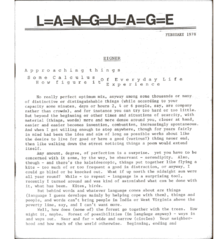
The anthology mentioned in the talk, The L=A=N=G=U=A=G=E Book (Poetics of the New), was published by Southern Illinois University Press, and is in print and available.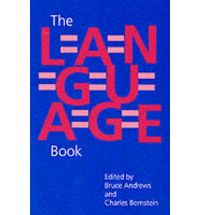 Note to listeners: as with all these historically based conversations about literary publishing, this is a relatively long listen, at about 48 minutes.
Note to listeners: as with all these historically based conversations about literary publishing, this is a relatively long listen, at about 48 minutes.
Podcast: Play in new window | Download
Publishing Talks: David Wilk interviews Charles Bernstein and Al Filreis of PennSound
December 4, 2013 by David
Filed under Publishing History, PublishingTalks, Technology
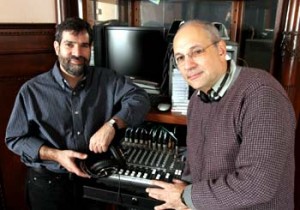 In this series of interviews, called Publishing Talks, I have been talking to book industry professionals and other smart people about the future of publishing, books, and culture. This is a period of disruption and change for all media businesses. We must wonder now, how will publishing evolve as our culture is affected by technology, climate change, population density, and the ebb and flow of civilization and economics?
In this series of interviews, called Publishing Talks, I have been talking to book industry professionals and other smart people about the future of publishing, books, and culture. This is a period of disruption and change for all media businesses. We must wonder now, how will publishing evolve as our culture is affected by technology, climate change, population density, and the ebb and flow of civilization and economics?
It’s my hope that these conversations can help us understand the outlines of what is happening in publishing and writing, and how we might ourselves interact with and influence the future of publishing as it unfolds.
PennSound is a very special online resource that was instigated by founders Al Filreis and Charles Bernstein with the incredible support of the University of Pennsylvania in Philadelphia. There is really nothing like it in the world, and for anyone interested in poetry, poetics, or the literary world of the past 100 years, it is an incredibly important resource. The energy and dedication that has gone into this unmatched collection of recordings of poets reading, lecturing and talking about poetry is a gift whose impact will be felt for many years to come.
Filreis wears many hats – he is Kelly Professor at UPenn, Director, Center for Programs in Contemporary Writing, Co-Director, PennSound, Publisher of the literary magazine Jacket2 as well as Faculty Director, Kelly Writers House. In addition, he is the author of a number of books of criticism. Charles Bernstein, an old friend of mine, is one of the most important poets and critical thinkers of his generation of writers. He was the David Gray Professor of Poetry and Letters at the SUNY Buffalo and Director of the Poetics Program, which he co-founded with poet Robert Creeley. At SUNY, he co-founded the Electronic Poetry Center with Loss Glazier. Charles is currently the Donald T. Regan Professor of English and Comparative Literature at the University Pennsylvania. He was a co-founder also of the important literary magazine L-A-N-G-U-A-G-E and is the author of many books of poetry and theoretical writings about poetry, language and thinking. Also in this discussion is Michael Hennessey, the editor of PennSound, and author of the “PennSound Daily” column. Michael holds an MFA in Creative Writing from Emerson College and has published critical work in magazines and anthologies.
I wanted to talk to Filreis, Bernstein and Hennessey about how PennSound came into being, to learn more about its scope and breadth, and to hear first hand their plans for the future. My hope is that our discussion will draw as much attention and support to PennSound as possible. And I can’t help enjoying the appropriateness of presenting an audio experience of this essential audio resource. There is something new and compelling posted at PennSound almost every day. Please visit, spend some time, and enjoy the rich trove of poetry as spoken and discussed by the poets themselves.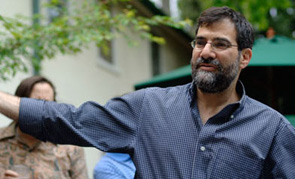 Even those who don’t read or even like poetry have their minds changed by the experience of hearing the words out loud.
Even those who don’t read or even like poetry have their minds changed by the experience of hearing the words out loud.
Podcast: Play in new window | Download

